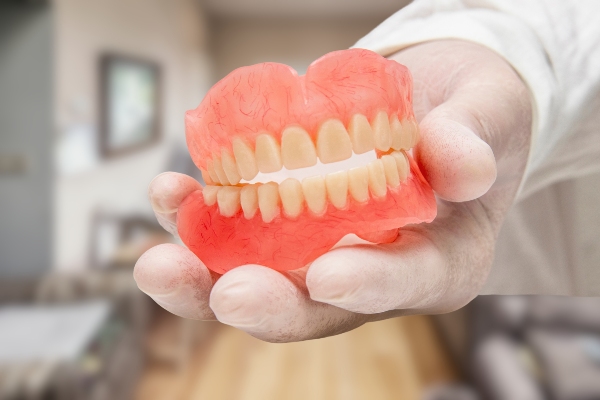 Dentures are a popular teeth replacement solution that can improve the function and appearance of your smile. They are designed to look like natural teeth and consist of different materials, such as acrylic and metal. Whether you are new to dentures or have been wearing them for years, it is important to properly care for and maintain them to ensure their longevity and oral health. Here are some tips and practices for denture care and maintenance.
Dentures are a popular teeth replacement solution that can improve the function and appearance of your smile. They are designed to look like natural teeth and consist of different materials, such as acrylic and metal. Whether you are new to dentures or have been wearing them for years, it is important to properly care for and maintain them to ensure their longevity and oral health. Here are some tips and practices for denture care and maintenance.
Clean the dentures daily
Just like natural teeth, dentures can accumulate plaque, food particles, and bacteria if not cleaned regularly. This can make patients susceptible to gum disease, oral infections, and bad breath. The following tools can help keep dentures clean:
- A soft-bristled toothbrush
- Water
- Denture cleaning solution or mild dish soap
- A soft towel
Brush the dentures at least twice a day— once in the morning and once at night. Do not use regular toothpaste when cleaning the dentures. Many brands of toothpaste contain abrasive ingredients and can gradually damage the surface of the dentures, leading to small scratches or cracks.
While it is important to care for the dentures, it is equally important to clean the gums thoroughly. After removing the dentures, use a soft-bristled brush or damp cloth to gently clean the gums, tongue, and palate every morning and evening to remove plaque and stimulate circulation.
Soak the dentures overnight
Patients with dentures should not wear the appliance while sleeping. Soaking them overnight in a glass of water or a mild denture-cleaning solution gives their soft tissues a rest and helps keep the dentures moist and in shape. It also helps remove any remaining debris and stains.
However, one should thoroughly rinse the dentures before putting them back in the mouth, particularly if they have been soaking in a denture solution. These solutions may contain chemicals that can lead to vomiting, pain, or burns if the patient swallows them.
Schedule regular checkups
Scheduling regular checkups with a dentist is essential to maintaining one's oral health. Those with dentures need to continue to go to checkups every six months to ensure their dentures fit properly and address any potential issues early on, such as mouth sores, bleeding gums, and bad breath. Additionally, the dentist can professionally clean the dentures and provide additional care and maintenance advice.
Patients experiencing issues with their dentures should make an appointment as soon as possible. Contact the dentist if the dentures:
- Feel uncomfortable
- Easily slip or no longer fit properly
- Make noise when talking or eating
- Visibly cracked, scratched, or broken
- A false tooth falls out
Properly caring for your dentures can ensure their longevity
Daily care and maintenance can help preserve your oral health and overall well-being while ensuring the longevity and effectiveness of your dentures. With the proper care, dentures can last an average of seven to 10 years. Do you have questions or concerns about denture care? Our team is here to help. Call our office to learn more or schedule an appointment.
Request an appointment or call Golden Smiles Dental at 909-297-1966 for an appointment in our Rancho Cucamonga office.
Related Posts
Traditional dentures can be either full or partial. These are custom-fit restorations that can improve your smile, bite, and chew. Complete and partial dentures are traditional. Understanding how these prostheses vary can help you decide which one can work for you. Here are the differences between complete and full dentures.These are for people who do…
The need for relining your dentures may not occur to you because of your busy schedule. But being aware of it can help you get relining services in time. Relining these restorations can help maintain your oral health and prevent discomfort. Here are the three signs you need to get relining services right away. Inspecting…
Dentures are a great solution for people who have lost some or all of their teeth. They can restore one's ability to eat and speak properly and improve the overall appearance of your smile. However, you may have questions about the denture process, from the initial consultation to the final fitting. This blog article will…


